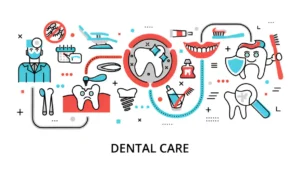The Importance of Preventive Dental Care and How It Impacts Overall Health
Table of Contents
- Introduction to Preventive Dental Care
- Key Components of Preventive Dental Care
- Benefits of Routine Dental Check-ups
- Preventive Dental Tips for Families
- The Connection Between Oral and General Health
- Innovative Technologies in Preventive Dentistry
- Addressing Common Dental Myths
- Conclusion: Taking Charge of Your Dental Health
Introduction to Preventive Dental Care
Preventive dental care represents a proactive strategy to preserve oral health and prevent dental complications from escalating into significant concerns. This care encompasses a range of activities designed to protect healthy teeth and gums. Central to this philosophy are regular dental consultations, professional cleanings, and daily personal oral hygiene habits like brushing and flossing. With services available across various regions, including notable examples such as https://www1.deltadentalins.com/areas-we-serve/westvirginia.html, preventive dental care is within reach for many, reinforcing its importance as a universal health practice. By investing in preventive care, individuals contribute to their overall wellness, maintaining a bright smile and a healthier body.
Key Components of Preventive Dental Care
The essentials of preventive dental care are built into everyday habits and occasional professional interventions safeguarding oral health. Daily brushing is one of the foundational practices recommended by dentists; by using fluoride toothpaste, individuals can prevent cavities efficiently. Flossing complements brushing by reaching areas between the teeth that a toothbrush might miss, reducing the risk of decay and plaque build-up. Regular dental visits, recommended at least twice a year, provide an opportunity for professional cleanings and thorough examinations to detect issues early. Dental practitioners may use additional preventive measures, such as dental sealants and fluoride treatments, to offer further protection against tooth decay, particularly in children. Combining these elements establishes a strong foundation for maintaining enduring oral health.
Benefits of Routine Dental Check-ups
Routine dental check-ups offer myriad benefits vital for both oral and systemic health. Such appointments allow dentists to conduct detailed examinations and cleanings, detecting tooth decay, gum disease, and early signs of severe conditions like oral cancer. Identifying problems early means treatments can be quicker, less invasive, and less costly. Moreover, professional cleanings during check-ups remove tartar and plaque that brushing alone can’t eliminate. This proactive measure helps prevent cavities and minimizes the likelihood of periodontal disease, both of which have links to broader health issues such as cardiovascular disease and diabetes. Hence, regular dental visits are fundamental to maintaining overall health and wellness.
Preventive Dental Tips for Families
Fostering preventive dental care within a family environment is key to establishing long-term oral health habits. Begin by selecting appropriate toothbrushes for each family member; children might enjoy cartoon-themed brushes to make their routine fun. Parents can lead by example, brushing and flossing alongside their children to instill these practices effectively. Dietary practices are essential; minimizing the intake of sugary snacks and drinks while promoting healthier options such as fruits and vegetables can significantly decrease the likelihood of tooth decay. Consistent dental examinations emphasize the significance of oral hygiene and foster a positive and reassuring experience for children, which they can carry into their adult lives. Establishing these habits early ensures the entire family maintains strong dental health.
The Connection Between Oral and General Health
Maintaining good oral health is essential for overall well-being, as increasing evidence highlights a significant relationship between the two. Poor dental hygiene can contribute to severe health complications, including vascular diseases, diabetes, and respiratory issues. For instance, chronic inflammation resulting from gum disease can exacerbate systemic inflammation, which plays a role in various health conditions. Oral infections can elevate the likelihood of experiencing a stroke or heart attack, as bacteria may enter the bloodstream.
Recognizing these connections underscores the necessity of maintaining rigorous oral hygiene practices. The benefits extend beyond a beautiful smile, serving as preventive care that safeguards against broader health risks.
Innovative Technologies in Preventive Dentistry
The realm of dentistry has seen remarkable technological advancements that enhance the efficacy of preventive care. Digital radiography, utilizing lower radiation levels than traditional X-rays, provides precise imaging for accurate diagnoses. Intraoral cameras offer detailed views of the oral cavity, enabling practitioners to identify potential issues that might go unnoticed. Recent innovations have revolutionized preventive dentistry, allowing greater precision and speed in treatments and diagnoses. Adopting these technologies signifies significant progress in dental health care, enabling a proactive approach to preventing oral health problems rather than merely addressing them after they arise.
Addressing Common Dental Myths
Myths and misconceptions surrounding dental care can impede proper oral health maintenance. For instance, the notion that brushing harder enhances cleanliness can cause harm, leading to enamel loss and gum damage. Another widespread belief is that only sugars contribute to dental cavities, while in reality, acids produced by bacterial metabolism are the culprits of enamel decay. Some people wrongly assume that dental visits are unnecessary until symptoms like pain emerge; this mindset overlooks the benefits of regular check-ups that can preemptively address issues before they necessitate complex treatments. Educating oneself about these myths supports better health decisions, promoting practices that ensure a lifetime of optimal oral health.
Conclusion: Taking Charge of Your Dental Health
Investing in preventive dental care is a vital step toward holistic health. It requires a dedicated approach involving consistent personal hygiene practices alongside regular professional care. This dual focus helps preserve oral health, enhancing quality of life and overall well-being. By partnering with dental professionals who advocate for prevention-focused strategies, individuals can be empowered to make informed decisions that positively affect their oral health. Today’s commitment to preventive measures lays the groundwork for a future where oral health issues are minimized, leading to confident smiles and resilient health.
Read more: Goa Games Unleashed: The Ultimate Coastal Playgrounds
Unlock the Power of Diuwin with Easy Login
BDG Win – Play Big, Win Bigger







